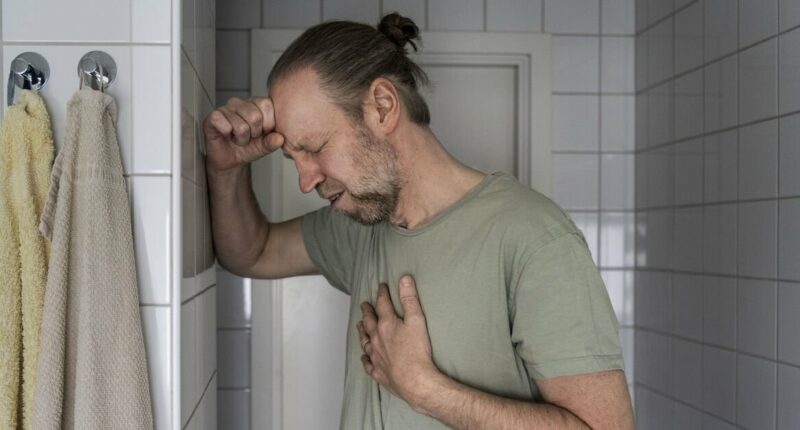Share this @internewscast.com
A test that takes less than a minute may be able to predict the likelihood of you having a heart attack or stroke over the next 10 years, according to recent research findings.
Scientist used artificial intelligence (AI) to analyse digital retinal photographs, which are taken to capture images from the back of the eye to look for certain conditions. The technology was able to generate customised risk assessments in just seconds, with the hope that the simple test will become part of routine health screenings like blood pressure and cholesterol tests.
This would allow healthcare professionals to pick up any indicators as early as possible. In a study featured in the journal Cardiovascular Diabetology, the University of Dundee’s researchers put the AI system to the test on retinal scans from individuals with type 2 diabetes.
Patients with this form of diabetes undergo regular eye examinations to detect diabetic retinopathy, where elevated blood sugar levels can harm the retina’s blood vessels.
Dr Ify Mordi, a British Heart Foundation research fellow at the University of Dundee and a consultant cardiologist, said: “It may be surprising, but the eyes are a window to the heart.”
“If there is damage or narrowing of the blood vessels at the back of the eye, there is a good chance that will also be seen in the blood vessels further inside the body, supplying the heart, which could lead to a heart attack or stroke.”
The experts trained the AI to initially identify potential red flags in the images, such as signs of blood vessel constriction or obstructions. The system was then allowed to examine any detail within the photographs, including the size or configuration of blood vessels, before undergoing training with 4,200 images.
The AI technology successfully predicted individuals who would experience “major cardiovascular events”, such as heart attacks or strokes, within a decade with 70% accuracy.
Dr Mordi explained: “This is a one-stop scan which is routinely performed and takes less than a minute. It could be an important part of the package, alongside blood pressure and cholesterol checks, in identifying people who could benefit from medication or lifestyle changes.”
Professor Bryan Williams, chief scientific and medical officer at the British Heart Foundation, added: “The more accurately we can detect someone’s risk of a heart attack or stroke, the better the opportunities to prevent these happening.
“Cutting-edge innovations, like the use of retinal scans alongside health checks, could play a role in improving risk prediction, which is important if we are to reach the British Heart Foundation’s goal to prevent 125,000 heart attacks and strokes in the UK by 2035. However, more research is needed to show this prediction accuracy is robust, and to determine the feasibility of incorporating retinal scans into clinical practice.”
Dr Clare Jonas, research lead at the Stroke Association, shared that it could be a game-changer, adding: “AI analyses of health data, gathered through screening technology such as this eye scan, have exciting potential for better early detection, especially for those with diabetes who have a greater chance of having a stroke.
“Advances like these could make it easier for people at risk of stroke to take the right steps to stop it from happening.”
Dr Jonas also highlighted the need for strategic planning, concluding: “Whilst there are still many practical questions to answer about whether, when and how AI could be used in clinical practice, we hope the Government’s 10 Year Health Plan will take such technological advances into account to stop more strokes from devastating people’s lives.”















